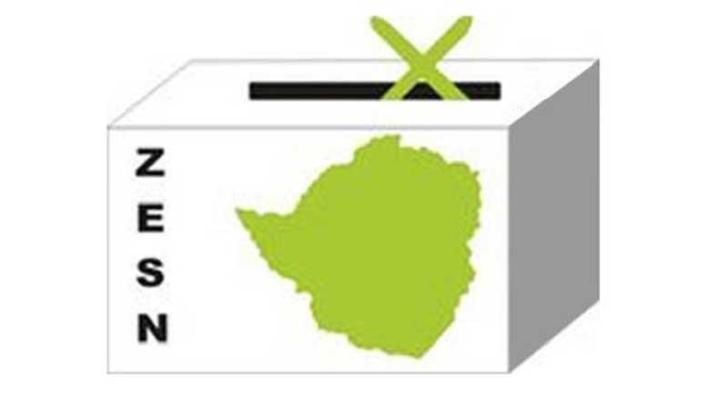News / National
Election watchdog pushes for political parties Bill
04 Nov 2024 at 06:47hrs |
0 Views

The Zimbabwe Election Support Network (ZESN) has urged the government to develop a robust regulatory framework for political parties, emphasizing that this is essential for strengthening electoral democracy in the country. In a recent position paper titled Pragmatics and Purposes of Political Party Regulation in Zimbabwe, ZESN highlighted the critical absence of legislation governing political parties as a significant factor contributing to operational chaos within the political landscape.
Currently, the only regulated aspect of political party operations in Zimbabwe is financing, while other essential areas such as registration and deregistration remain unregulated. ZESN warned that this lack of oversight has resulted in numerous challenges, including election-related disputes, volatile party systems, and insufficient accountability among political entities.
"The absence of legislation regulating political parties has also led to a wide range of other electoral challenges, impacting the integrity and effectiveness of democratic processes, particularly in the 2023 elections," ZESN stated. The watchdog pointed out that the regulatory gap has also exacerbated administrative difficulties for the Zimbabwe Electoral Commission (ZEC) and other electoral stakeholders, especially in light of recent developments such as the Citizens Coalition for Change (CCC) recalls and the subsequent by-elections.
The Minister of Justice, Legal and Parliamentary Affairs has previously indicated the burden this lack of regulation places on ZEC, suggesting that political parties should be officially registered. ZESN echoed this sentiment, noting that the absence of regulation places undue expectations on ZEC and other stakeholders to consult all entities that identify as political parties.
To mitigate the growing trend of non-acceptance of election results, ZESN called for immediate attention to the party financing law, which currently benefits only ZANU-PF and the CCC. The organization stressed the necessity for revisions to existing clauses that prohibit private funding for political parties, advocating for a comprehensive campaign and funding law based on best practices.
ZESN further recommended that political parties be regulated to ensure compliance with a legal and normative framework concerning their internal functioning, financing, and code of conduct. The establishment of a statutory body, similar to Kenya's Registrar of Parties, was proposed to manage the registration of political parties, rather than leaving this responsibility to ZEC.
"Care must be taken to ensure that calls for the regulation of political parties are genuine and aimed at enhancing multi-party systems, inter-party relations, and building stronger political entities," ZESN concluded.
The call for reform underscores the critical need for regulatory measures that foster a fair and transparent electoral environment, essential for the consolidation of democracy in Zimbabwe.
Currently, the only regulated aspect of political party operations in Zimbabwe is financing, while other essential areas such as registration and deregistration remain unregulated. ZESN warned that this lack of oversight has resulted in numerous challenges, including election-related disputes, volatile party systems, and insufficient accountability among political entities.
"The absence of legislation regulating political parties has also led to a wide range of other electoral challenges, impacting the integrity and effectiveness of democratic processes, particularly in the 2023 elections," ZESN stated. The watchdog pointed out that the regulatory gap has also exacerbated administrative difficulties for the Zimbabwe Electoral Commission (ZEC) and other electoral stakeholders, especially in light of recent developments such as the Citizens Coalition for Change (CCC) recalls and the subsequent by-elections.
The Minister of Justice, Legal and Parliamentary Affairs has previously indicated the burden this lack of regulation places on ZEC, suggesting that political parties should be officially registered. ZESN echoed this sentiment, noting that the absence of regulation places undue expectations on ZEC and other stakeholders to consult all entities that identify as political parties.
To mitigate the growing trend of non-acceptance of election results, ZESN called for immediate attention to the party financing law, which currently benefits only ZANU-PF and the CCC. The organization stressed the necessity for revisions to existing clauses that prohibit private funding for political parties, advocating for a comprehensive campaign and funding law based on best practices.
ZESN further recommended that political parties be regulated to ensure compliance with a legal and normative framework concerning their internal functioning, financing, and code of conduct. The establishment of a statutory body, similar to Kenya's Registrar of Parties, was proposed to manage the registration of political parties, rather than leaving this responsibility to ZEC.
"Care must be taken to ensure that calls for the regulation of political parties are genuine and aimed at enhancing multi-party systems, inter-party relations, and building stronger political entities," ZESN concluded.
The call for reform underscores the critical need for regulatory measures that foster a fair and transparent electoral environment, essential for the consolidation of democracy in Zimbabwe.
Source - The Chronicle
Join the discussion
Loading comments…



























